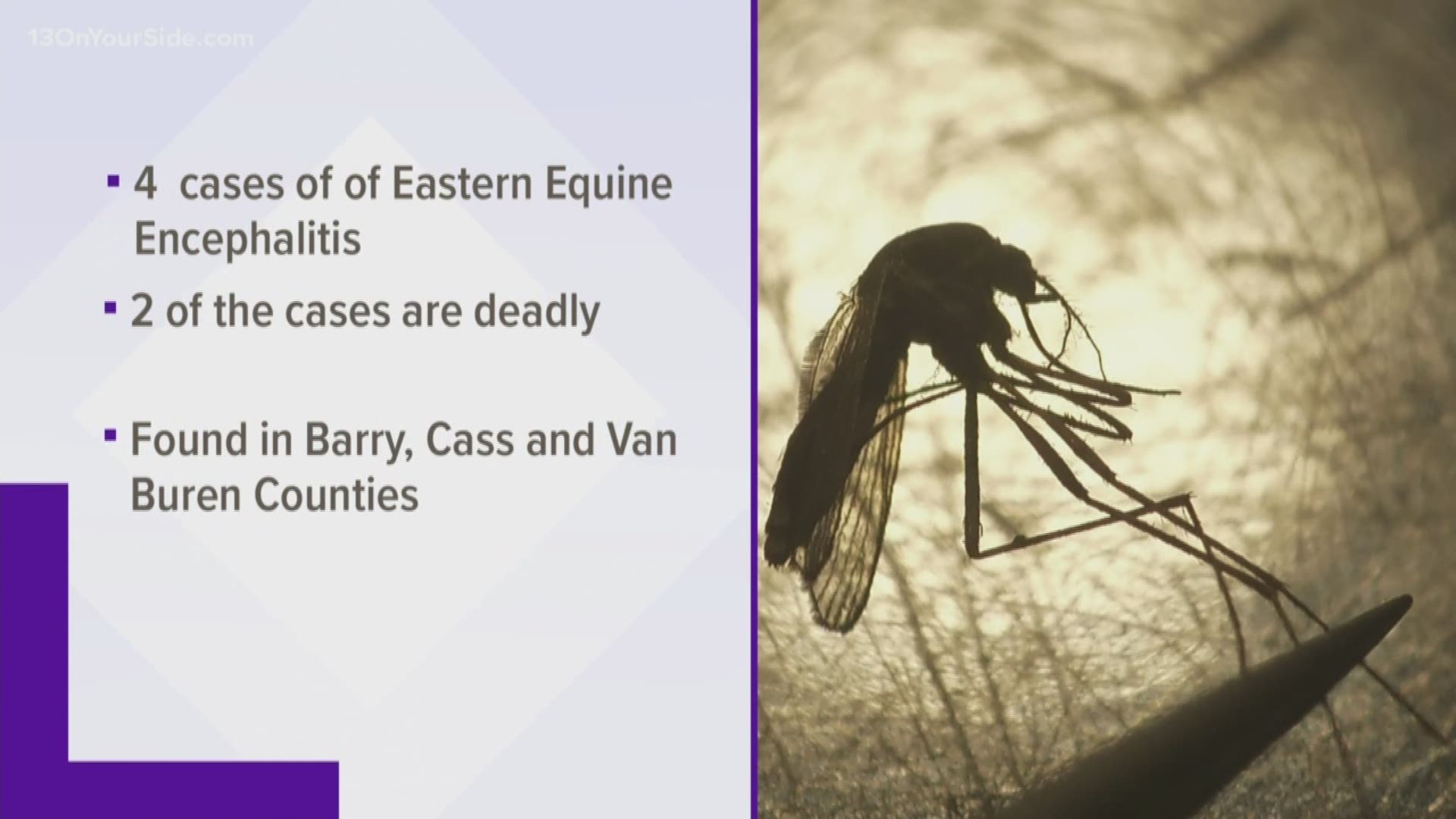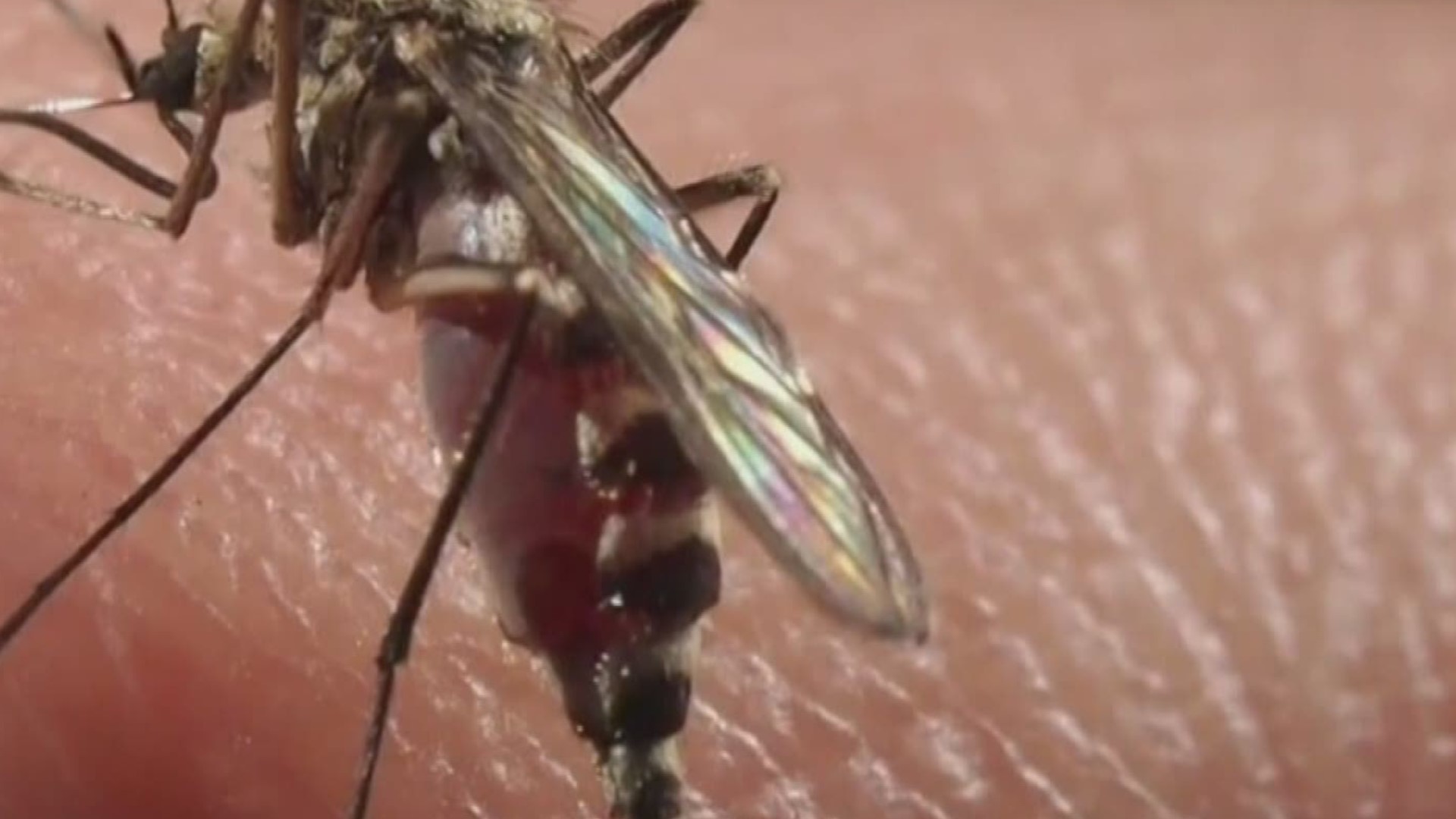GRAND RAPIDS, Mich. - The Michigan Department of Health and Human Services (MDHHS) is advising residents to protect themselves from mosquito bites after four cases of Eastern Equine Encephalitis (EEE) have been confirmed in southwest Michigan.
Two of the cases have been fatal.
MDHHS is taking further action to protect the public from the mosquito-borne illness that has now resulted in seven confirmed cases of EEE in Michigan since early July.
The new cases expand the geographic area affected to include Barry, Cass and Van Buren counties. Previously identified cases were in Kalamazoo and Berrien counties. Fatalities occurred in the cases from Cass, Van Buren and Kalamazoo counties.
MDHHS is encouraging the affected counties — as well as St. Joseph, Genesee and Lapeer counties, which have had animal EEE cases — to consider postponing, rescheduling or canceling outdoor activities occurring at or after dusk, particularly those that involve children. These would include late evening sports practices, games or outdoor music practices.
As of Sept. 16, nine cases of EEE in horses have been confirmed in Barry, Kalamazoo, Lapeer and St. Joseph counties. None of the horses were vaccinated against EEE and all animals have died.
The Kalamazoo County Health and Community Services Department also issued a recommendation to local municipalities and schools to consider canceling outdoor events or moving them inside if they're scheduled after dusk.
“Michigan is currently experiencing its worst Eastern Equine Encephalitis outbreak in more than a decade,” said Dr. Joneigh Khaldun, MDHHS chief medical executive and chief deputy for health. “The ongoing cases reported in humans and animals and the severity of this disease illustrate the importance of taking precautions against mosquito bites.”
To avoid mosquito bites, Michigan residents should follow these steps:
- Apply insect repellents that contain the active ingredient DEET, or other U.S. Environmental Protection Agency-registered product to exposed skin or clothing, and always follow the manufacturer’s directions for use.
- Wear long-sleeved shirts and long pants when outdoors. Apply insect repellent to clothing to help prevent bites.
- Maintain window and door screening to help keep mosquitoes outside.
- Empty water from mosquito breeding sites around the home, such as buckets, unused kiddie pools, old tires or similar sites where mosquitoes may lay eggs.
- Use nets and/or fans over outdoor eating areas.
RELATED: How to spot and prevent EEE
Signs and Symptoms
EEE is one of the most dangerous mosquito-borne diseases in the United States, with a 33 percent fatality rate in people who become ill. People can be infected with EEE from the bite of a mosquito carrying the viruses. Persons younger than age 15 and over age 50 are at greatest risk of severe disease following infection.
Signs of EEE include the sudden onset of fever, chills, body and joint aches which can progress to a severe encephalitis, resulting in headache, disorientation, tremors, seizures and paralysis. Permanent brain damage, coma and death may also occur in some cases. Anyone experiencing these symptoms should visit their physician’s office.
Other headlines from 13 ON YOUR SIDE:
RELATED VIDEO:
►Make it easy to keep up to date with more stories like this. Download the 13 ON YOUR SIDE app now.
Have a news tip? Email news@13onyourside.com, visit our Facebook page or Twitter. Subscribe to our YouTube channel.


